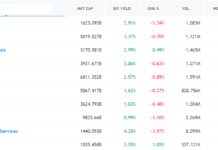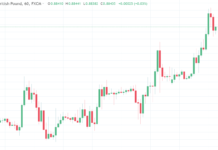We bet that any novice broker is wondering how brokers make money. This is a very simple scheme. A trader gives a part of their profits to a broker as a reward for providing the services. Such a reward is called a spread. A spread is the number of pips received by a broker on each trade, whether profitable or not. On the website of your selected broker, you can check out the size of a spread on different trading instruments.
Choosing a Forex broker is a serious matter. You can’t just pick a random broker and hope for the best. Before making a decision, be sure to read traders’ reviews and check out the size of a spread. The good news is that some brokers even refund a part of the spread to their clients. To get access to this service, you need to register an account directly with a broker or their affiliate. A broker pays an affiliate a reward for attracting a new client, and the affiliate returns a part of the spread to a trader. As you can see, it’s a win-win situation.
With such a big selection of companies, choosing the right broker can be a very challenging task. This is where broker ratings come to the spotlight. Such ratings take into account both expert reviews and the experience of common traders.
Leverage
When talking about the way brokers make money, we can’t leave out margin trading. All brokers provide their clients with a leverage. Simply speaking, a trader can borrow money from a broker to open more positions of a larger size.
Here is an example. Suppose, you have some high-liquidity shares. Your broker can sell these shares at any time. The broker offers you a $100,000 loan. If you take the loan and your shares go up by 30%, you’ll make $30,000 +$30,000, minus interest.
Sounds good, right? However, if your shares go down by 30%, you’ll lose $30,000 + $30,000, plus interest. Out of $100,000, you’ll only have $40,000 left. At the same time, your broker will make a nice profit. If you have $100,000 and leverage is 1:2, the broker will loan you $200,000 more. If the shares go down by 50%, you’ll lose all your money and the broker will get an x2 fee.
Short sales
Short sales are another powerful source of a broker’s income. It’s when a trader sells an asset that doesn’t belong to them.
Let’s take another example. You expect the value of certain shares to go down shortly. This means you’ll want to sell. Your broker offers you to borrow these shares from them.
You borrow the shares from the broker and sell them. You wait for the price to fall and then buy the same shares at a lower price. The difference between the prices will make up your profit. Your broker will get a part of your profit as a reward for borrowing you the assets. However, if your forecast doesn’t come true and the shares go up, you’ll have to buy them at a higher price to be able to pay back the broker.





